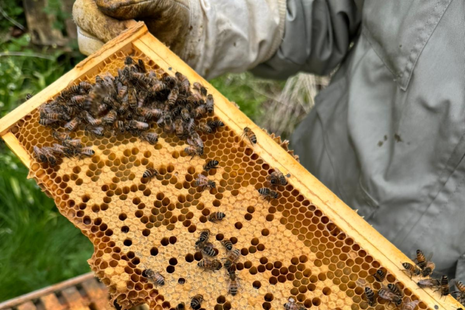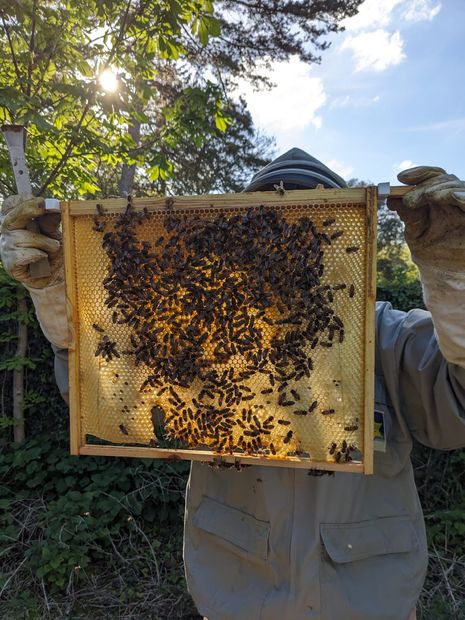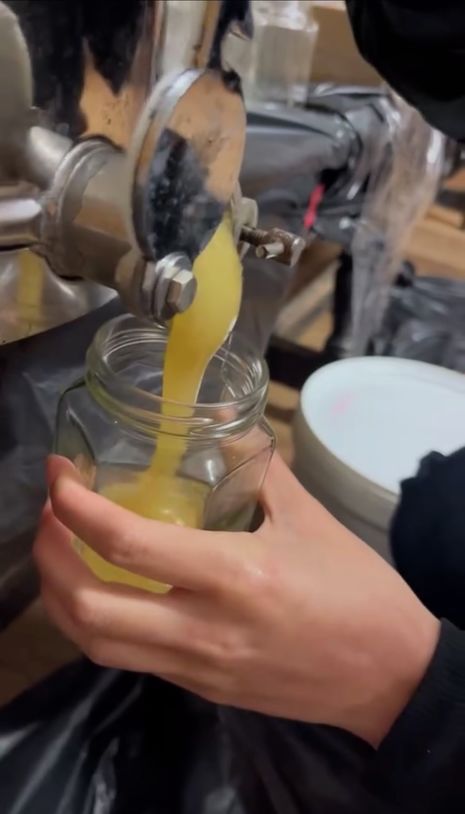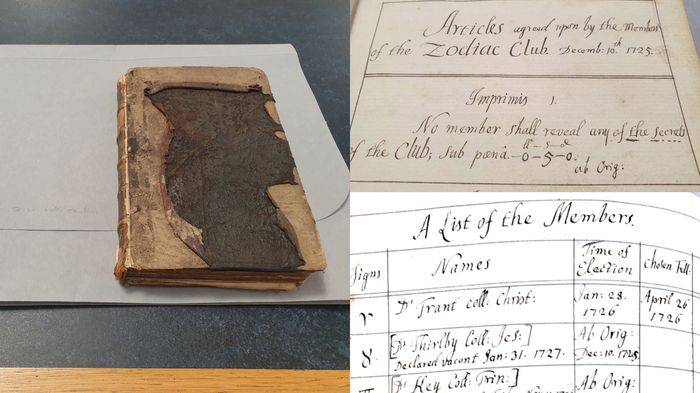Honey, honey, how you keep bees…
Bee-autiful! Delve into the world of Cambridge’s beekeeping societies with Sadia Batool

In almost every conversation I’ve had about beekeeping, I’ve received the same response – one which is both eager and inclusive of TikTok’s ‘Texas Beeworks’. Clearly, there exists a kind of curiosity concerning honeybees. For this reason, I’ve taken it upon myself to try and translate this enthusiasm from screens to general routines. So, whether you seek to celebrate or save the bees, this article should offer you greater clarity. I’ve spoken to three beekeepers – Sofia Dartnell, Nynke Blömer, and Theo Von Wilmowski – each president of their college beekeeping society, to learn about the benefits of beekeeping and how honeybee enthusiasts might get involved. As a member of St. John’s Beekeeping Society, it’ll come as no surprise that I too will attest to their brilliance!
St. John’s, Darwin, and King’s are the first colleges to keep bees. They are kept on college grounds, where gardens provide them with plenty of forage. Apiarists and gardeners are not the only ones thinking about bees. Take John’s groundsman, Keith Ellis, for example. Nynke describes how he makes sure to “keep pesticide use on the playing fields closest to the apiary to an absolute minimum.”
“John’s groundsman, Keith Ellis […] makes sure to ‘keep pesticide use on the playing fields closest to the apiary to an absolute minimum’”

Each of these societies follows a similar schedule that involves weekly hive inspections in the late spring and the entirety of the summer, and a harvest at the very end of the summer or the start of autumn. There may even be two harvests depending on how much honey is produced. During the harvest, we remove frames from supers (essentially boxes storing multiple frames), remove any beeswax from said frames, and place them into an extractor to be spun. Honey then trickles down to the bottom and is strained before being jarred and sold in a buttery near you.
Having attended regular hive inspections for over a year and two harvests, I’ve unsurprisingly grown quite attached to the bees. As sentimental as it sounds, you realise just how much time and energy is required to sustain the health of a colony and produce a fair amount of honey. Having any item we want readily available at the press of a button makes attending activities that slow our perception of production particularly important. This way, we begin to understand just how valuable a singular jar of honey is. So, when asked to produce a jar of honey, we as beekeepers respond with casual amusement and notice of the next harvest in a year’s time.
“Honey then trickles down to the bottom and is strained before being jarred and sold in a buttery near you”

By now, it’s obvious that the bees require an enormous amount of attention and attending regular hive inspections means that you become actively involved in maintaining their health. Sofia details how rewarding this experience is for her. Given how young each of these beekeeping societies are (none older than five years), it is essential that students become and remain interested in sustaining their health, happiness, and habitat on college grounds.
The social element of beekeeping is not to be forgotten! Sofia mentions how Darwin College runs a series of crafting events in the winter. They have so far made beeswax ChapStick and have even brewed their own mead. John’s also runs a few equipment building events. Regardless of the kind of events being run, I underscore Theo’s point that beekeeping is ultimately an opportunity to engage with both nature and fellow honeybee enthusiasts, all while getting away from the library for at least a small portion of the week.
As for safety, attendees are expected to be in full gear around the bees and under the supervision of a committee member. If this is not enough to reassure you or quell any fears, I recommend attending the harvest in which there is no real direct interaction between attendees and bees.
If bees benefit us, college butteries and local ecosystems, then they deserve at least some consideration. We’ve all been accused of being swept away by the whirlwind that is Cambridge, so engaging in an activity that helps slow things down – both our schedules and perceptions – will certainly help. Consider how the friends I dragged along with me to John’s summer harvest have agreed upon the activity being incredibly wholesome and collaborative. Should you feel inclined to start your own college beekeeping society, both Theo and Nynke would be delighted to expand the Cambridge Beekeeping Network!
 Interviews / You don’t need to peak at Cambridge, says Robin Harding31 December 2025
Interviews / You don’t need to peak at Cambridge, says Robin Harding31 December 2025 News / Unions protest handling of redundancies at Epidemiology Unit30 December 2025
News / Unions protest handling of redundancies at Epidemiology Unit30 December 2025 Comment / What happened to men at Cambridge?31 December 2025
Comment / What happened to men at Cambridge?31 December 2025 Features / ‘Treated like we’re incompetent’: ents officers on college micromanagement30 December 2025
Features / ‘Treated like we’re incompetent’: ents officers on college micromanagement30 December 2025 Theatre / We should be filming ADC productions31 December 2025
Theatre / We should be filming ADC productions31 December 2025








